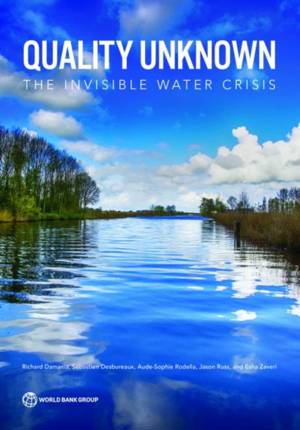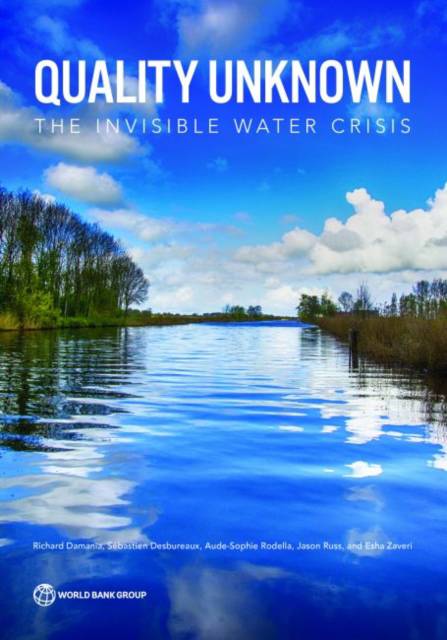
- Afhalen na 1 uur in een winkel met voorraad
- Gratis thuislevering in België vanaf € 30
- Ruim aanbod met 7 miljoen producten
- Afhalen na 1 uur in een winkel met voorraad
- Gratis thuislevering in België vanaf € 30
- Ruim aanbod met 7 miljoen producten
Zoeken
Quality Unknown
The Invisible Water Crisis
Richard Damania, Sébastien Desbureaux, Aude-Sophie Rodella, Jason Russ, Esha Zaveri
Paperback | Engels
€ 64,45
+ 128 punten
Omschrijving
Water quantity--too much in the case of floods, or too little in the case of droughts--grabs public attention and the media spotlight. Water quality--being predominantly invisible and hard to detect--goes largely unnoticed. Quality Unknown: The Invisible Water Crisis presents new evidence and new data that call urgent attention to the hidden dangers lying beneath water's surface. It shows how poor water quality stalls economic progress, stymies human potential, and reduces food production. Quality Unknown examines the effects of water quality on economic growth and finds upstream pollution lowers growth in downstream regions. It reveals that some of the most ubiquitous contaminants in water, such as nitrates and salt, have impacts that are larger, deeper, and wider than has been acknowledged. And it traces the damage to crop yields and the stark implications for food security in affected regions. An important step toward tackling the world's water quality challenge is recognizing its scale. The world needs reliable, accurate, and comprehensive information so that policy makers can have new insights, decision making can be evidence based, and citizens can call for action. The report calls for a paradigm shift that emphasizes safer, and often more cost-effective remedies that prevent pollution by combining smarter policies with newer technologies. A key message of Quality Unknown is that such solutions exist and change is possible.
Specificaties
Betrokkenen
- Auteur(s):
- Uitgeverij:
Inhoud
- Aantal bladzijden:
- 140
- Taal:
- Engels
Eigenschappen
- Productcode (EAN):
- 9781464814594
- Verschijningsdatum:
- 27/09/2019
- Uitvoering:
- Paperback
- Formaat:
- Trade paperback (VS)
- Afmetingen:
- 175 mm x 251 mm
- Gewicht:
- 698 g

Alleen bij Standaard Boekhandel
+ 128 punten op je klantenkaart van Standaard Boekhandel
Beoordelingen
We publiceren alleen reviews die voldoen aan de voorwaarden voor reviews. Bekijk onze voorwaarden voor reviews.







